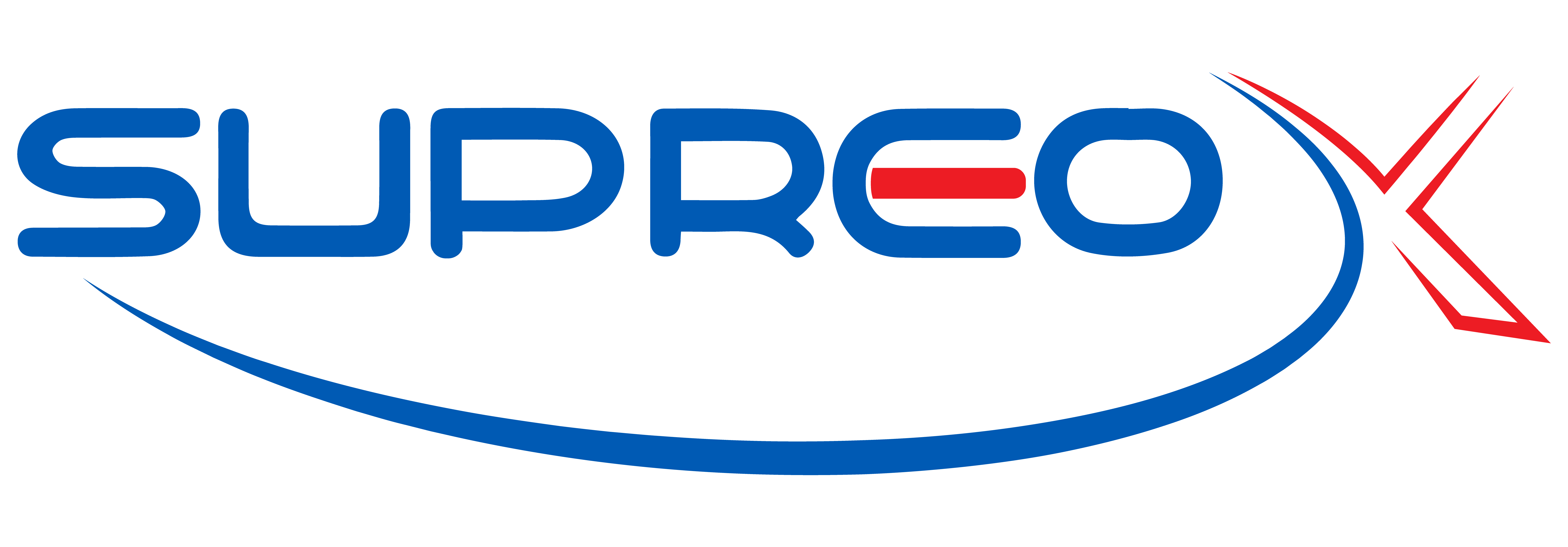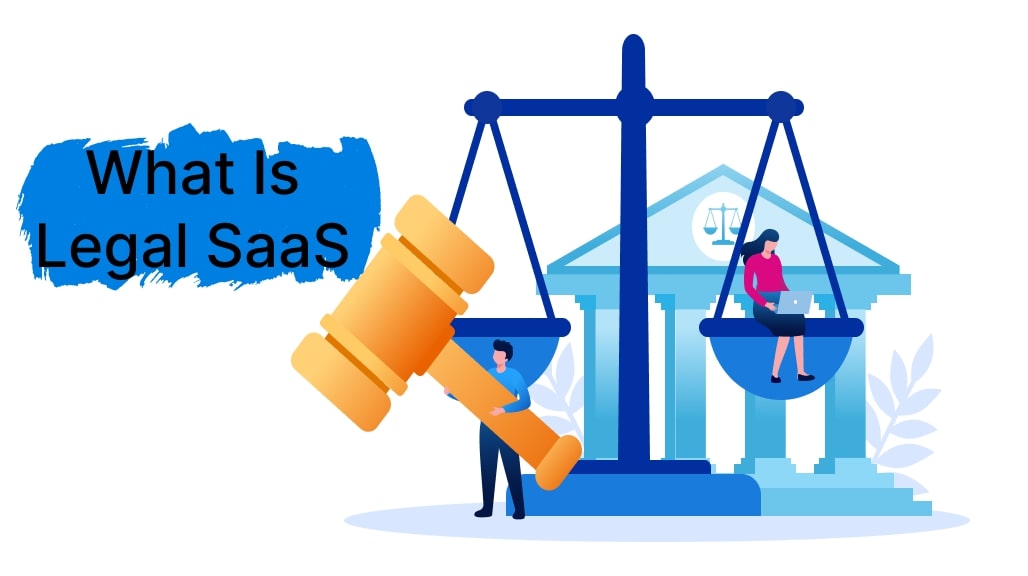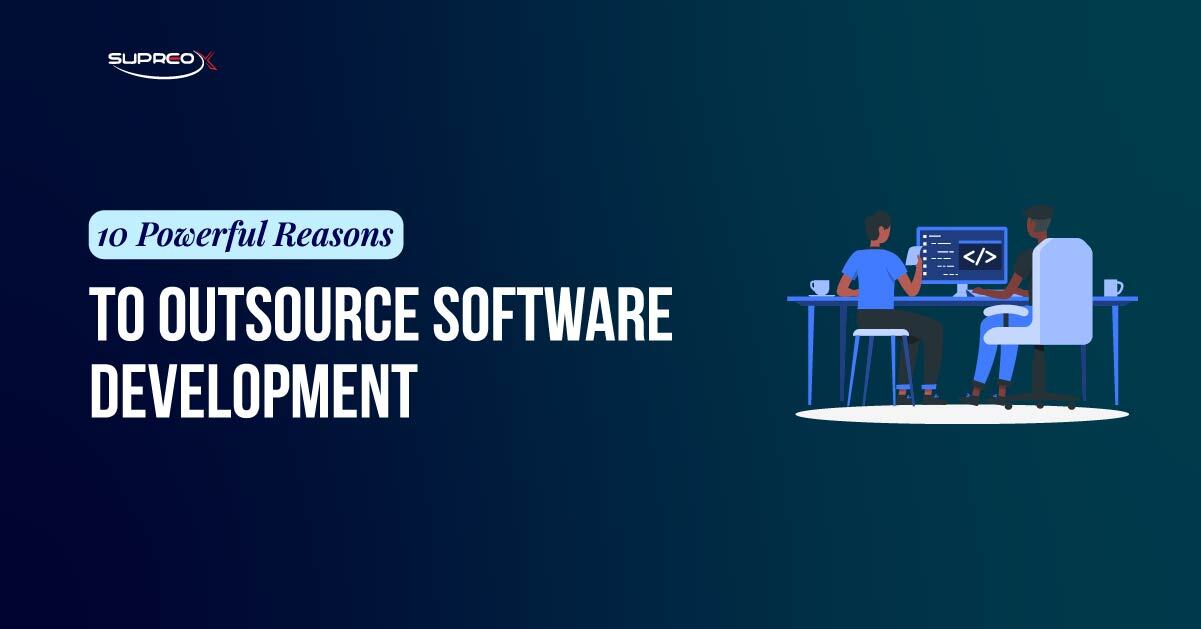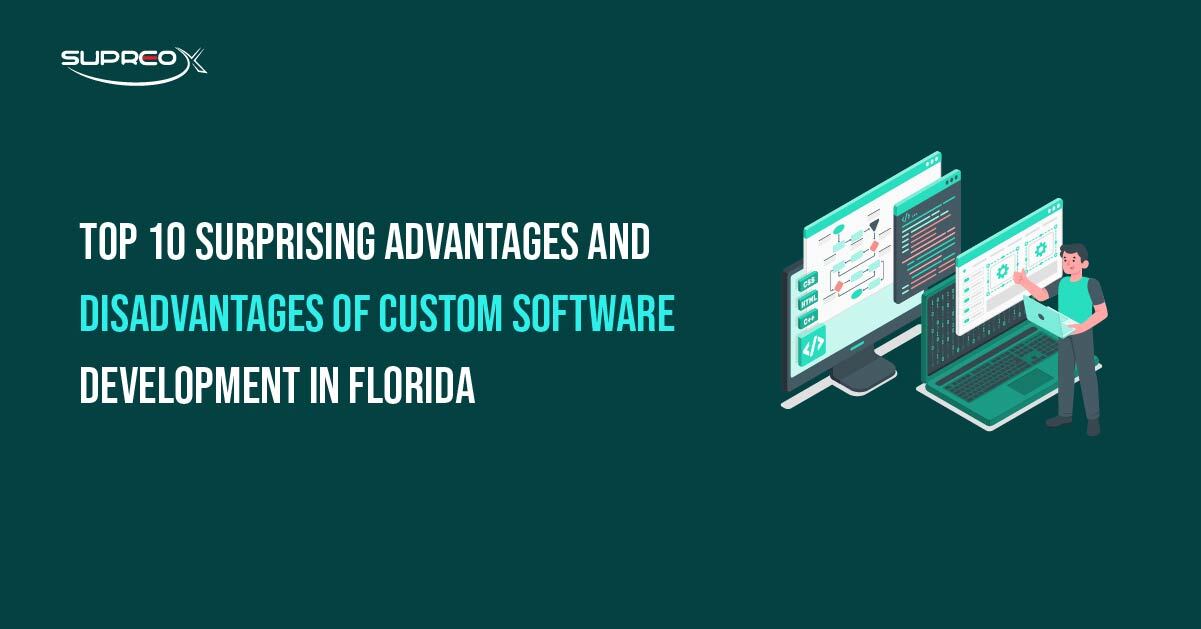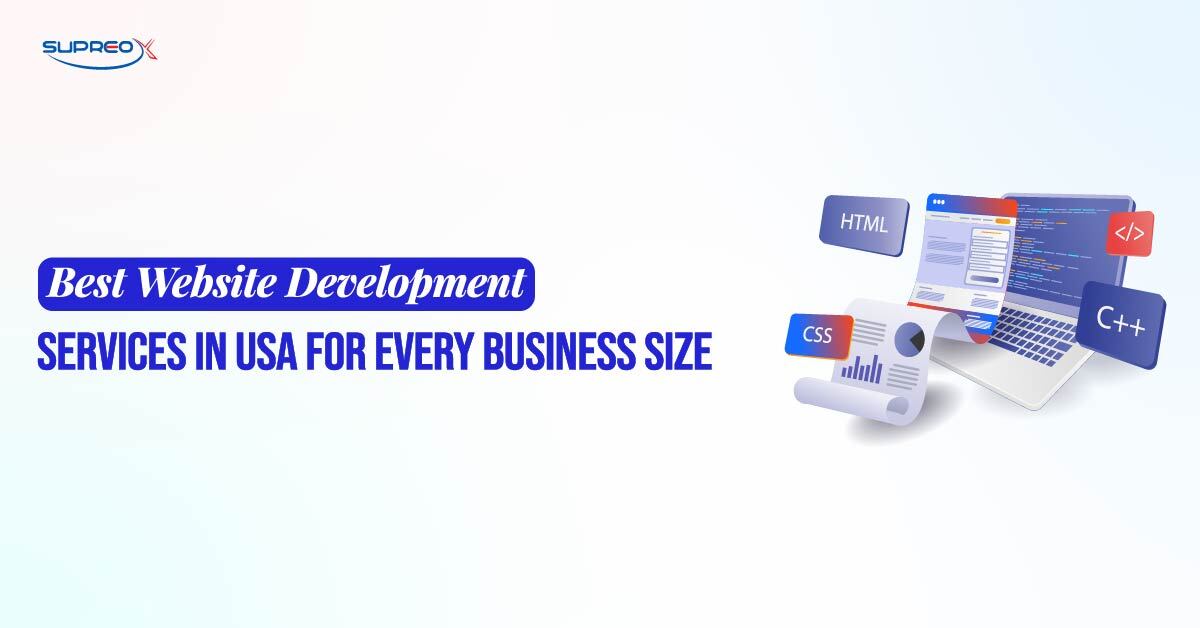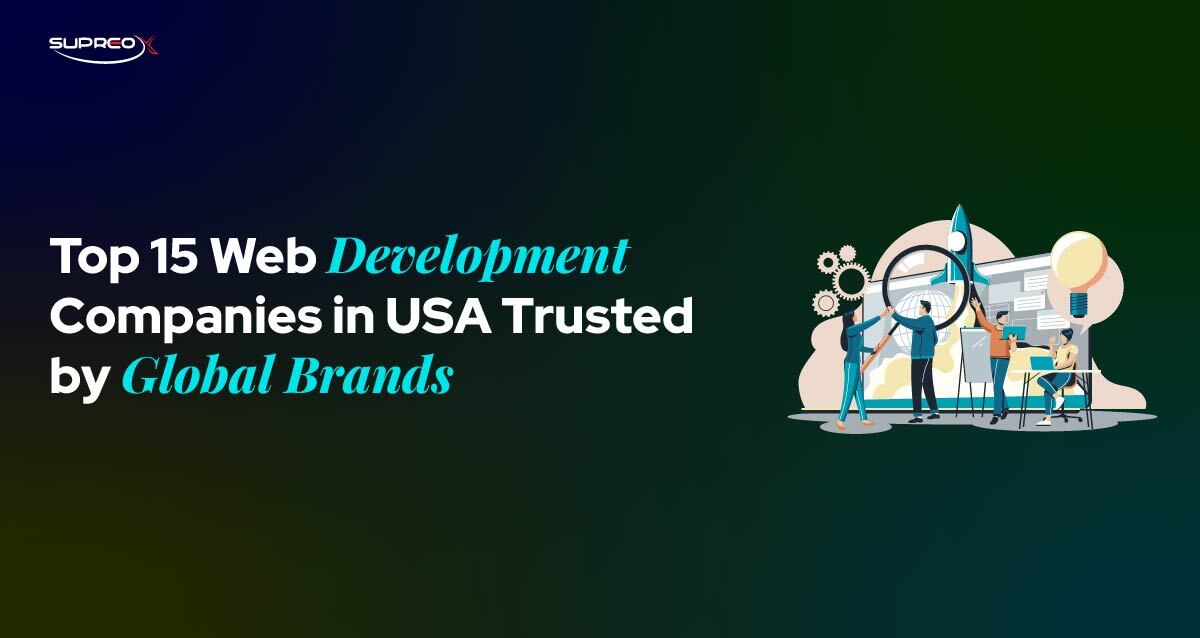The legal industry has traditionally been slow to adopt new technology, but today it’s undergoing a significant transformation. Software as a Service (SaaS) is revolutionizing the way law firms operate, offering powerful tools to streamline operations, enhance client service, and drive business growth.
In this comprehensive guide, you’ll learn what Legal SaaS is, how it benefits law firms, and how to choose and implement the right solution for your practice.
What Is Legal SaaS?
Legal SaaS is cloud-based software delivered over the internet by a third-party provider on a subscription basis. Instead of purchasing expensive software licenses and hardware, law firms access and use applications via the web. These solutions are scalable, secure, and accessible from any device with an internet connection.
Legal SaaS covers a wide range of tools, including:
- Secure client communication portals
- Case and document management
- Billing and time tracking
- Legal CRM (client relationship management)
The Rise of Legal SaaS in the Legal Industry
At first, many law firms were unsure about using SaaS. But now, over 50% of law firms have started using these platforms. This shows a big change in how law firms work and help their clients. More and more legal teams are turning to Legal SaaS for several key reasons.
One major reason is better online security and cloud systems. Legal SaaS providers now offer strong data protection, like encryption and backups, to keep client information safe. This has helped ease early fears about security and privacy.
Another significant reason is that an increasing number of lawyers are working remotely or in hybrid setups. Mobile-friendly SaaS tools make it easy for attorneys to check files and work from anywhere. This helps with flexibility and makes it easier to manage work-life balance.
Also, today’s clients expect fast and easy service. SaaS tools help law firms offer things like secure client portals, instant updates, and better ways to talk with clients online.
Benefits of Legal SaaS for Law Firms
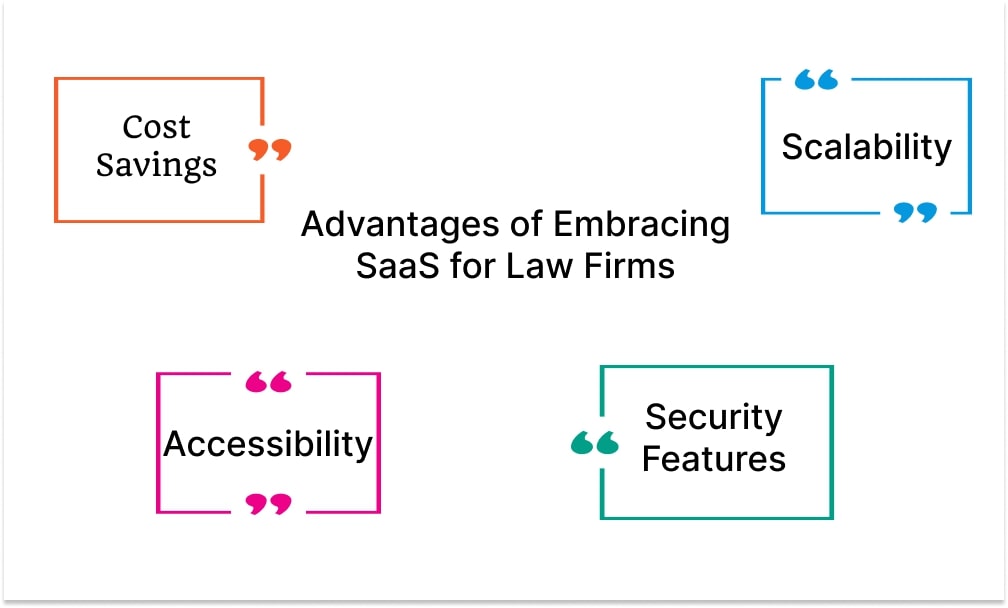
Legal SaaS offers numerous advantages that help law firms reduce costs, improve productivity, and better serve clients.
Cost Efficiency
No need to invest in servers or dedicated IT staff. SaaS providers handle updates, maintenance, and support, freeing firms from infrastructure costs.
Scalability
Easily upgrade or downgrade services as your firm grows. Pay only for what you use.
Anywhere Access
Access files, dashboards, and communication tools from any device, enabling mobile work and better client service.
Built-in Security
Top SaaS platforms offer bank-level encryption, secure cloud storage, and automatic backups—often exceeding the security of on-premise systems.
Common Applications of Legal SaaS
SaaS platforms are now available for nearly every part of a law firm’s daily operations:
Case Management: Automate task tracking, deadlines, and workflows.
Document Management: Store, organize, and share files securely in the cloud.
Time Tracking & Billing: Streamline invoicing, time entries, and revenue tracking.
Client Collaboration Tools: Improve communication and transparency with secure portals and messaging.
Example: A personal injury firm using cloud-based case management saw a 40% increase in case resolution speed thanks to automated intake and document workflows.
Key Features to Look for in a Legal SaaS Platform
When choosing a Legal SaaS solution, prioritize features that directly support your law firm’s day-to-day needs and long-term goals.
User-Friendly Interface
The software should have an intuitive layout that’s easy to learn and navigate for everyone on your team, even those with limited tech experience. This makes training faster and boosts daily productivity.
Compliance & Data Security
Make sure the platform follows industry standards like HIPAA or GDPR, and that it offers strong security measures, including encryption, user access controls, and secure cloud storage.
Customization & Integrations
Your SaaS platform should work well with the tools your firm already uses, like email systems, billing tools, calendar apps, and CRM platforms. The ability to customize dashboards or workflows is also a plus.
Training & Support
Look for vendors that provide reliable onboarding, training materials, and responsive customer support. A strong support system ensures your team can get help quickly and stay confident while using the platform.
How to Choose the Right Legal SaaS Provider?

Selecting the most suitable Legal SaaS involves several steps. Follow these steps to select the best solution:
- Assess Firm Needs: Identify inefficiencies and must-have features for your practice.
- Compare Platforms: Review top legal SaaS providers and compare pricing, reviews, and feature sets.
- Evaluate Support & SLAs: Ensure 24/7 customer support, data protection guarantees, and uptime commitments.
- Calculate Total Cost of Ownership: Look beyond monthly fees to include setup, migration, and training.
- Ask the Right Questions:
- Does it support secure data migration?
- What’s the uptime guarantee?
- Is disaster recovery included?
Legal SaaS Implementation Best Practices
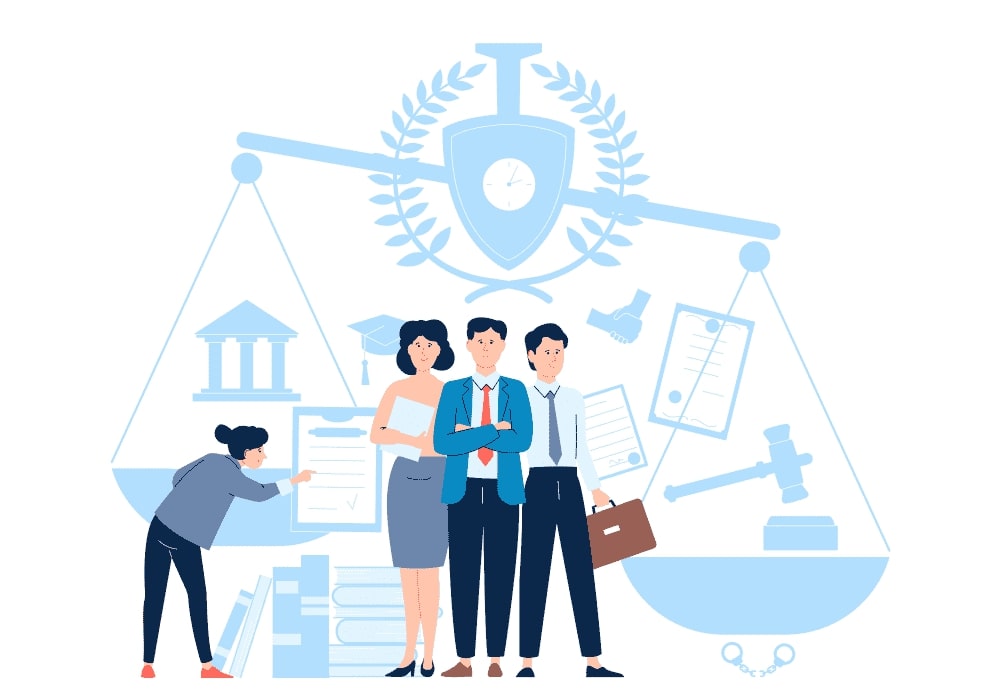
Here are the best practices that law firms can fully benefit from the power of Legal SaaS implementation.
Provide Role-Specific Training
Ensure attorneys, paralegals, and admin staff receive role-based onboarding to build confidence.
Plan for Seamless Data Migration
Work with the SaaS provider to clean, map, and securely migrate legacy data without downtime.
Create a Change Management Strategy
Communicate the benefits of SaaS to reduce resistance. Assign internal champions to help with adoption.
Leverage Ongoing Support
Choose vendors that provide continuous updates, security patches, and responsive support teams.
How Can Law Firms Use SaaS?
The versatility of Legal SaaS means it can be applied across various aspects of law firm operations. Here are some of the most common uses:
Case Management: Comprehensive platforms handle case files, track deadlines, and improve communication between team members and clients.
Document Storage and Management: Legal documents are securely stored, shared, and managed in the cloud, ensuring easy access while maintaining protection.
Billing and Time Tracking: Automated tools track time and create accurate invoices, enhancing revenue management.
Client Communication and Collaboration Tools: These platforms enable secure communication and collaboration, promoting transparency and client satisfaction.
Real-world examples show that many firms improve efficiency and client service using SaaS solutions. For instance, a personal injury law firm used a cloud-based case management system to automate client intake and case tracking, resulting in a 40% faster case resolution.
Common Challenges and How to Overcome Them?
The good news is that most of these issues can be managed with careful planning, clear communication, and choosing the right vendor. Learn the common challenges and how to overcome them.
Resistance to change: Emphasize time savings, improved collaboration, and ease of use.
Security concerns: Choose platforms with certifications, audits, and encryption standards.
Integration issues: Select software with open APIs or native integrations.
Conclusion
Legal SaaS is no longer a trend—it’s a necessity for law firms aiming to stay competitive, agile, and client-focused in 2025 and beyond. By choosing the right solution and following a thoughtful implementation process, law firms can achieve real gains in efficiency, security, and service delivery.
Ready to adopt a Legal SaaS solution that fits your firm’s goals? Contact SupreoX for a free consultation today.
Frequently Asked Questions (FAQs)
What makes Legal SaaS different from traditional software?
Legal SaaS is cloud-based, requires no installation, and includes automatic updates and support in a subscription model.
Is Legal SaaS secure enough for confidential case data?
Yes, reputable platforms offer top-tier security, including encryption, access controls, and compliance certifications.
How long does it take to implement a Legal SaaS solution?
Implementation time varies by firm size and complexity, but most transitions can be completed within a few weeks.
Can Legal SaaS integrate with tools my firm already uses?
Absolutely. Many Legal SaaS platforms offer native integrations and open APIs for connecting to calendars, email, billing, and CRM.
Does SupreoX offer support after implementation?
Yes, SupreoX provides ongoing technical support, training, and optimization strategies tailored to your firm’s specific growth needs.
